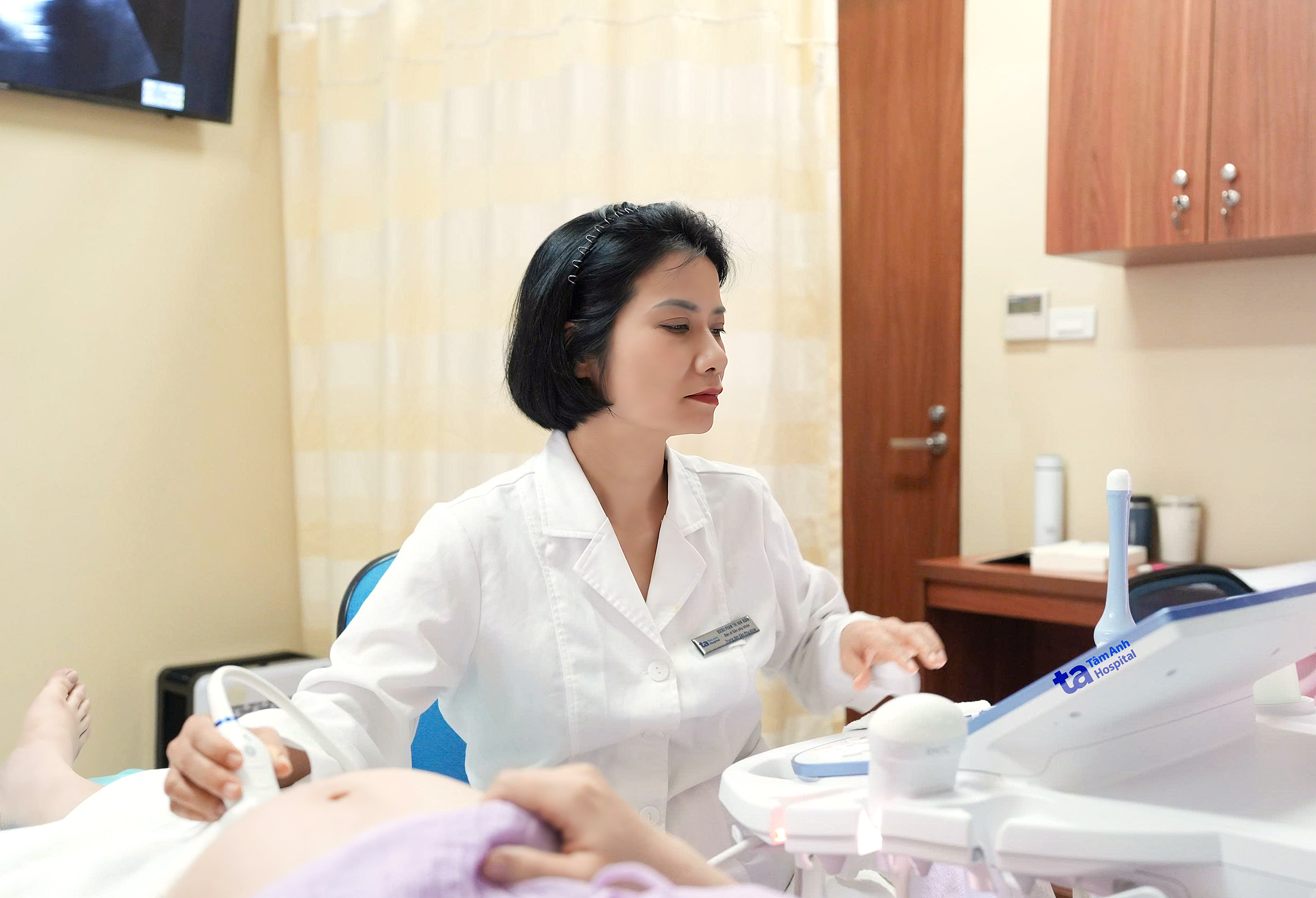Autoimmune diseases occur when the immune system, which normally protects the body from bacteria and viruses, attacks the body's own healthy cells and tissues. The exact cause of these diseases is unknown, but genetic factors, environmental factors, and external triggers may play a role.
According to Doctor Pham Thi Van Xuan of the Obstetrics and Gynecology Center at Tam Anh General Hospital in Hanoi, individuals with autoimmune diseases often face higher risks during pregnancy due to changes in the immune system. Complications can be severe, even leading to the death of both mother and child.
Systemic lupus erythematosus (SLE)
SLE is a chronic autoimmune disease affecting the skin, joints, kidneys, heart, and nervous system. Symptoms include fatigue, fever, a butterfly-shaped rash on the face, joint pain, and kidney inflammation. During pregnancy, SLE can lead to preeclampsia, HELLP syndrome, postpartum hemorrhage, premature birth, and stillbirth.
Women with lupus should have a specific plan before, during, and after pregnancy. They should ideally conceive when the disease is in remission, preferably 6 to 12 months after symptoms subside, and under the guidance of a doctor.
Rheumatoid arthritis (RA)
This disease causes chronic joint inflammation, pain, stiffness, and deformity. It increases the risk of premature birth, low birth weight, and postpartum joint complications. Many women with RA experience reduced symptoms during pregnancy but may have a significant relapse after delivery. However, women who take medication regularly during pregnancy or resume medication a few weeks after giving birth are less likely to experience flare-ups.
 |
Doctor Xuan performs an ultrasound on a pregnant woman. Illustrative photo: *Tam Anh General Hospital* |
Hashimoto's thyroiditis
This is a chronic thyroid inflammation caused by the immune system attacking the thyroid gland. Symptoms include fatigue, weight gain, hair loss, constipation, and cold hands and feet. Risks include hypothyroidism, which can cause miscarriage, premature birth, preeclampsia, and intellectual disability in the child. Pregnant women with Hashimoto's thyroiditis need regular check-ups to monitor and manage the disease, preventing anemia, miscarriage, and placental abruption.
Inflammatory bowel disease (IBD)
IBD, including Crohn's disease and ulcerative colitis, is a chronic inflammation of the digestive tract, causing diarrhea, abdominal pain, and malnutrition. Pregnant women with IBD may experience premature birth, low birth weight, miscarriage, and intestinal complications. They should discuss with their doctor the possibility of discontinuing immunosuppressants if necessary.
If Crohn's disease is active at the start of pregnancy, the patient's health may worsen during gestation, increasing the risk of premature birth and low birth weight. However, if the disease is stable and not progressing at the time of conception, the risks to the fetus are similar to those for women without Crohn's disease. Doctor Xuan advises women with Crohn's disease to ensure their condition is stable before planning a pregnancy.
Multiple sclerosis (MS)
MS damages myelin, the protective covering of nerve fibers, impairing motor and sensory functions. Symptoms include muscle weakness, loss of balance, blurred vision, and fatigue. The condition often improves during pregnancy but may relapse significantly after delivery. Women should discontinue immunosuppressants before planning pregnancy and be closely monitored postpartum. Sun exposure during pregnancy is recommended. Pregnant women with MS should maintain a balanced, nutritious diet to support their immune system and stay positive, as stress can exacerbate autoimmune diseases.
Doctor Xuan notes that while pregnancy with an autoimmune disease presents challenges, proper health preparation and appropriate medical care can ensure a safe pregnancy.
Thanh Ba
| Readers can submit questions about obstetrics and gynecology here for doctor's answers. |












